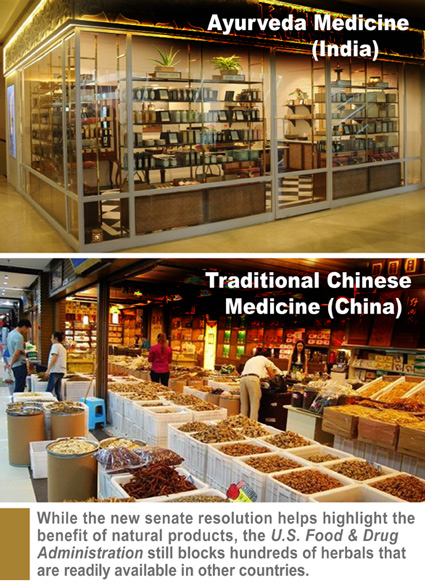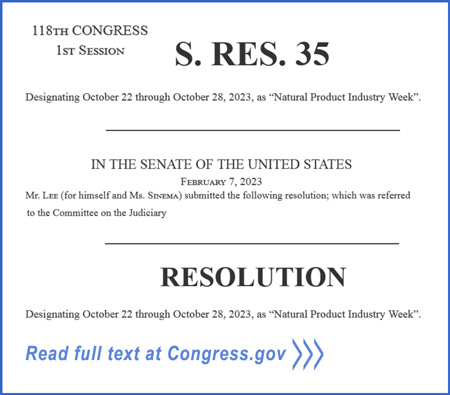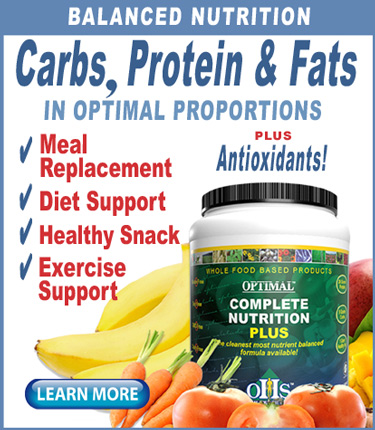When tourists from the U.S. visit Asian countries they are often shocked by the amount of medical freedom enjoyed in these “backward”countries.
Not only can consumers there choose between “traditional medicine hospitals” and “modern hospitals,” but they can also easily buy any assortment of medicinal roots, leaves, fungi, bark—or blends of all—from ubiquitous vendors across the country.
For the past 100 years American’s have been told this kind of “buyer beware” system is dangerous. Freedom of choice must be heavily regulated by health authorities for public safety.
However, medicine-related deaths in the U.S.—where only legal FDA-approved pharmaceuticals are used—is much higher per capita compared to Asian countries. Statistically, a consumer is less likely to die from a “traditional medicine” concoction sold by a street vendor than they are from a patented drug sold by a licensed pharmacist.
Perhaps this phenomenon has been recognized by some members of the U.S. Congress, and that’s why occasionally they make some small effort to recognize the tremendous health benefits that can be gleaned from non-pharmaceutical natural ingredients.
Last week, Senator Mike Lee from Utah and Senator Kyrsten Sinema from Arizona introduced a resolution seeking to recognize October 22-28 as “Natural Product Industry Week.” In the resolution’s text, the senators acknowledged the importance of nutritional supplements specifically, and noted the contributions made by natural products in general.
The senators noted the vast majority of Americans consume nutritional supplements and believe in the health benefits they confer. They also acknowledged that natural products saved the U.S. economy billions of dollars in healthcare costs through disease prevention and reduction of missed work days.
The resolution also acknowledged the passage of the Dietary Supplement Health and Education Act of 1994 (“DESHA”).
Under DESHA, congress deemed it more appropriate for the U.S. Food & Drug Administration to regulate nutritional supplements as a special category of food rather than as a drug. The legislation was passed by congress against the intense lobbying efforts of pharmaceutical corporations, and has been the standard guidance for supplement manufacturing for the past 30 years.
Trade associations concur
After the introduction of the resolution several natural products trade associations commended the senators.
“Vitamins, minerals, supplements, and other natural products have become a mainstream part of self-care, and consumers are turning to these products more than ever to address nutritional gaps and promote their health and wellness,” said Scott Melville, Consumer Healthcare Products Association (CHPA) president and CEO.
“As more Americans incorporate natural products into their overall self-care plans, CHPA thanks Senators Lee and Sinema for recognizing the ever-increasing role this industry is playing in people’s lives and looks forward to continuing to work with Congress toward comprehensive reforms that ensure continued success and innovation on behalf of U.S consumers,” added Melville.
United Natural Products Alliance (UNPA) president Loren Israelsen also commented: “It is entirely fitting that Congress recognize the anniversary of enactment of the Dietary Supplement Health and Education Act (“DSHEA”), which has done so much in the past 28 years to help consumers have access to the safe dietary supplements they want.
“UNPA was proud to have played a role in passing DSHEA and thankful that two supplement advocates, Senators Lee and Sinema, are working to commemorate that achievement for consumers.”
Meanwhile, The Council for Responsible Nutrition (CRN) thanked the senators for actually paying attention to the research showing nutritional supplements could save America billions of dollars in health care costs:
“We would like to thank Senators Mike Lee and Kyrsten Sinema for highlighting CRN’s Health Care Cost Savings Study data and for supporting our manufacturer and ingredient supplier members in their missions to promote and support healthy lifestyles for consumers,” said Steve Mister, president and CEO of CRN.
Survey shows vast majority of Americans trust supplements
Data from the latest CRN Consumer Survey on Dietary Supplements, released in October 2022, showed that 75% of U.S. adults reported consuming dietary supplements to maintain a healthy lifestyle, and a similar survey conducted in July by Consumer Reports put the figure at more than 80%.
Data from CRN’s 2022 Health Care Cost Savings Report indicates that dietary supplement regimens can reduce risks associated with several chronic diseases, as well as contribute to potentially billions of dollars in healthcare cost savings.
Specifically, there is evidence that the use of dietary supplement ingredients by targeted populations can significantly reduce direct and indirect medical costs related to health conditions such as coronary artery disease, osteoporosis, and cognitive decline.
Hope for the future?
Now that the U.S. Senate has again acknowledged the benefits of natural products, is there any chance they can work to tear down the regulatory roadblocks that make if more difficult for manufacturers to get these same products—and new ones—into the hands of consumers?
– – –
Sources: Congress.gov, The Council for Responsible Nutrition.



